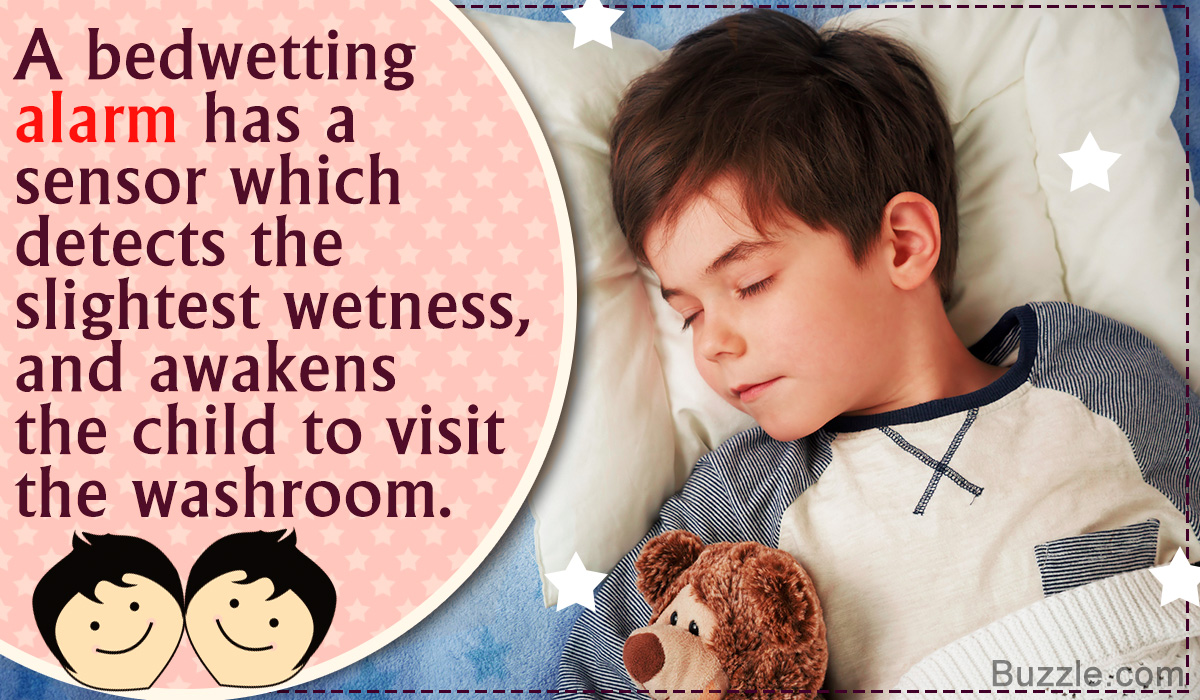
Bedwetting is involuntary passage of urine in human beings. It occurs mostly in children. It is considered normal, and stops as the child grows older. But sometimes it continues even when the child has achieved control over his/her urinary bladder. At such times an alarm is useful.
Bedwetting is scientifically termed as nocturnal enuresis. It is fairly common in children and caused because of slower development in controlling the urinary bladder. It is generally observed that girls learn to keep themselves dry by the age of 6 yrs, whereas boys learn it around the age of 7. Many times, children with this problem are looked down upon, and also punished. But parents need to understand that punishing the child or making him feel guilty would not help, rather proper diagnosis should be carried out and preventive measures should be adopted. Apart from children, even adults sometimes face the problem of enuresis or bedwetting. In adults the problem occurs because of various reasons either physical or mental. It is not an intentional act. The problem is with the control over the urinary bladder. In this article the focus will remain on bedwetting in children, and how does the alarm work for children.
Causes
The causes of bedwetting are not specific. They differ from child to child. In some cases the problem occurs because of some other disease that the child may suffer from, but it is very rare. However, it is not that healthy children (not suffering from any disease) do it purposely, or out of laziness. Children, generally, wet the bed at night. During daytime when they sleep they remain dry.
Bedwetting or enuresis is of two types, namely, primary enuresis and secondary enuresis. Primary enuresis occurs when the child is wetting the bed continuously, whereas secondary enuresis occurs when the child wets the bed occasionally although he/she has learned to remain dry.
Treatment Options
- Medication
- Home remedies
- Use of a bedwetting alarm
Treatment involving drugs, prescribed by the doctor, do not help much unless there are symptoms of an underlying disease. Home remedies involve certain measures that parents need to adopt. They can make use of bedwetting diapers. They must remind the child to visit the washroom before going to bed. The child must be praised for the nights he/she has stayed dry. From the above types of treatments, I will primarily focus on the use of a bedwetting alarm. Among the many treatments, this is the most effective and widely used treatment.
How do Bedwetting Alarms Work?
A bedwetting alarm is a device that alerts the child while he/she begins to urinate, and the child can then go to the washroom and finish off with it. The alarm has a sensor which is worn inside the underwear or over the night pants. When the child starts wetting, or is about to start, this sensor detects slightest wetness and the alarm awakens the child to visit the washroom.
Gradually, it helps the child wake up when his/her bladder is full. Generally, the best age to start using an alarm is 5-7 years. There are various types of alarms like wearable alarms, pad alarms, wireless alarms etc. The use depends on the comfort level, effectiveness, and flexibility of the device.
Though a wearable alarm is commonly used, some children are not comfortable with it for various reasons. So a wireless bedwetting alarm is the best option for them. The functioning of a wireless alarm is easier than a wearable alarm. Children who are sound sleepers, should use a wireless alarm because it does not obstruct their movements while sleeping. The child using it can move freely (when asleep) without any entanglement. The alarm should be placed somewhere in the room, away from the bedside, which conditions the child to get out of bed to turn it off and go the washroom. These alarms are easy to attach, detach and clean. In case of adults, people with lack of control over their urinary bladder, even while carrying out their daily activities, can use a wireless alarm. It will alert the person on time, avoiding an embarrassing situation.
The child can use the alarm devices consistently if the devices are comfortable and helpful. Parents and people around him/her must encourage and motivate the child to overcome the problem. Like I have said earlier, children must be rewarded for the dry nights they have spent. This will help the child feel secure and comfortable in the family and contribute to the recovery of the problem.


